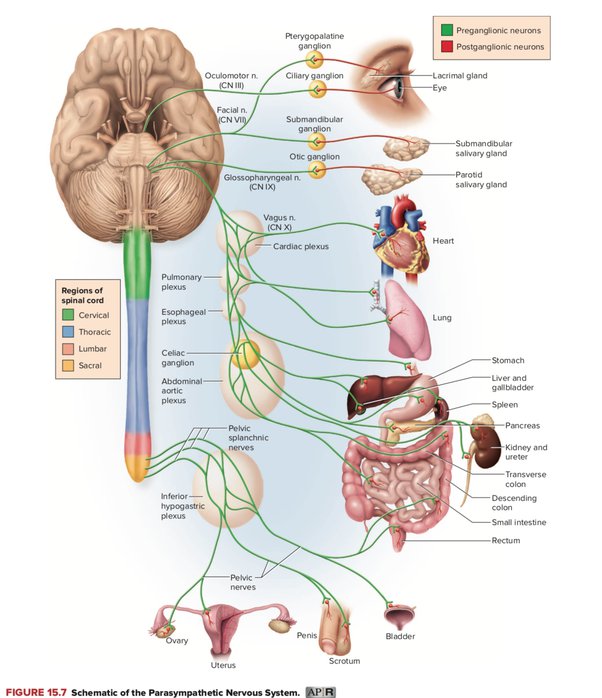
Imagine a delicate network of pathways, intricately woven throughout your body, silently orchestrating a symphony of physiological responses.
Deep within this complex web lies a remarkable nerve, often overlooked but now gaining the attention it deserves – the vagus nerve.
Like a conductor of the body’s orchestra, the vagus nerve holds the power to influence our physical and mental well-being in profound ways.
As we delve into the depths of this enigmatic nerve, we uncover its secrets, unravel its significance, and explore why it has become a captivating subject of scientific curiosity and wellness fascination.
what is the vagus nerve?
Step into a world where the Vegas nerve reigns supreme, dictating the rhythm of our heartbeat, the digestion of our meals, and the soothing balm that calms our restless minds.
Nestled deep within the core of our being, this cranial nerve extends its reach like tendrils, connecting the brain to an intricate network of vital organs.
It is the vagus nerve that whispers instructions to our heart, coaxing it to beat steadily or race in excitement. It is this same nerve that commands our digestive system, orchestrating the dance of enzymes and muscles that break down our food.
But the vagus nerve’s influence doesn’t end there – it extends its reach to our lungs, our liver, our spleen, and even our voice box. It is a master communicator, relaying messages and maintaining balance within our inner ecosystem.
Beyond its physical prowess, the vagus nerve reveals itself as a guardian of our mental and emotional well-being.
It possesses the power to calm the storm of anxiety, to lift the weight of depression, and to restore a sense of tranquility within us.
Research has illuminated the profound connection between the vagus nerve and our mental health, pointing to its role in modulating our body’s stress response.
As we delve deeper into this intricate relationship, we begin to understand the vagus nerve’s potential as a catalyst for healing and resilience.
expanding on the possibilities
The allure of the vagus nerve lies not only in its inherent power but also in the emerging therapeutic approaches that harness its potential.
Scientists and medical professionals have begun to explore the realm of vagus nerve stimulation, a groundbreaking technique that utilizes electrical impulses to activate and regulate this mighty nerve.
From epilepsy and migraines to inflammation-related disorders and even cognitive enhancement, the possibilities seem limitless.
As we venture into the realm of vagus nerve stimulation, we encounter stories of hope and transformation, where lives have been restored and the boundaries of human potential pushed further.

What Happens When the Vegus Nerve Is Out of Whack
When the vagus nerve is functioning optimally, it acts as a calming force, helping us navigate the storms of stress and anxiety. It dampens our body’s fight-or-flight response, allowing us to relax and find a sense of balance.
But what happens when this delicate balance is disrupted, and the vagus nerve loses its grip on tranquility?
Research suggests that a dysfunctional vagus nerve can contribute to a range of mental health disorders.
When the nerve’s signaling is impaired or erratic, it can lead to heightened anxiety, depression, and even post-traumatic stress disorder (PTSD).
The vagus nerve’s intricate connections to the brain’s emotional centers play a crucial role in regulating our moods, emotions, and stress responses. When this regulation is compromised, it opens the door to a host of mental health imbalances.
Various factors can throw the vagus nerve off balance. Chronic stress, for instance, can impair its functioning, leading to a heightened state of anxiety and emotional turmoil.
Traumatic experiences can also disrupt the vagus nerve’s regular signaling, leaving individuals vulnerable to mood disorders and emotional dysregulation.
Additionally, lifestyle factors such as poor diet, lack of exercise, and insufficient sleep can impact the vagus nerve’s health, further exacerbating mental health challenges.
Recognizing the intricate relationship between the vagus nerve and mental health opens up new avenues for intervention and healing.
How to Know If Your Vegus Nerve Isn’t Functioning Properly
Here’s a quick and dirty list of things to look for:
1. Digestive issues: Your digestion may be affected, leading to problems such as frequent indigestion, bloating, constipation, or difficulty swallowing.
2. Heart rate and blood pressure fluctuations: You may experience sudden drops in heart rate or blood pressure, leading to dizziness, lightheadedness, or fainting spells.
3. Vocal changes: Your voice may be affected, resulting in hoarseness, voice weakness, or difficulty speaking.
4. Anxiety and mood disturbances: Vagus nerve dysfunction can impact the regulation of stress responses, potentially leading to chronic anxiety, mood swings, or feelings of depression.
5. Sweating and temperature regulation problems: Issues with sweating, either excessive or insufficient, and difficulty regulating body temperature may occur due to vagus nerve dysfunction.
6. Poor immune function: The vagus nerve helps regulate the immune system, so if it isn’t functioning properly, you may be more susceptible to infections or have difficulty in fighting off illnesses.
7. Problems with sleep: Vagus nerve dysfunction can disrupt the sleep-wake cycle, leading to difficulties falling asleep or staying asleep throughout the night.
8. Reduced gut motility: The vagus nerve plays a role in stimulating the muscles of the digestive tract, so impaired vagus function may result in slowed or irregular movement of food through the intestines.
9. Lowered ability to relax: The vagus nerve is involved in the “rest and digest” response of the body, so when it’s not functioning optimally, it may be harder for you to relax and unwind.
10. Impaired memory and concentration: Vagus nerve dysfunction has been associated with cognitive issues such as poor memory, difficulty concentrating, and brain fog.
How to Nurture Your Vegus Nerve
1. Practice Deep Breathing
Deep, diaphragmatic breathing activates the vagus nerve, promoting relaxation and reducing stress.
Take slow, deep breaths, focusing on lengthening your exhales. Aim for several minutes of deep breathing exercises each day.
2. Engage in Meditation
Regular meditation practice has been shown to stimulate the vagus nerve and improve mental health.
Find a quiet space, close your eyes, and focus on your breath or a specific mantra. Start with just a few minutes a day and gradually increase the duration.
3. Engage in Regular Exercise
Especially aerobic exercises like walking, jogging, or swimming, can stimulate the vagus nerve and enhance its functioning.
Aim for at least 30 minutes of moderate-intensity exercise most days of the week.
4. Prioritize Sleep
Sufficient and quality sleep is crucial for vagus nerve health.
Create a relaxing bedtime routine, ensure a comfortable sleep environment, and aim for 7-9 hours of uninterrupted sleep each night.
5. Practice Mindfulness
Practicing mindfulness throughout the day can help regulate stress and activate the vagus nerve.
Stay present in the moment, observe your thoughts and emotions without judgment, and engage in activities mindfully, paying attention to your senses.
6. Eat a Healthy Diet
A diet rich in whole foods, fruits, vegetables, and healthy fats supports vagus nerve health.
Avoid processed foods, excessive sugar, and caffeine, as they can disrupt the nerve’s functioning.
Consider incorporating omega-3 fatty acids found in fish, flaxseeds, and chia seeds, as they have been linked to improved mental health.
7. Spend Time in Nature
Nature has a calming effect on the nervous system, including the vagus nerve.
Spend time outdoors, whether it’s a walk in the park, gardening, or simply sitting in a natural setting, to promote relaxation and vagal tone.
8. Practice Social Connection
Positive social interactions and meaningful relationships have been linked to improved vagus nerve function.
Engage in activities that foster connection, spend time with loved ones, and seek support when needed.
9. Consider Vagus Nerve Stimulation (VNS)
VNS therapy, under the guidance of a healthcare professional, may be an option for individuals with severe mental health conditions.
It involves the use of electrical impulses to stimulate the vagus nerve and regulate its functioning.
10. Seek Professional Help
If you’re experiencing significant mental health challenges, it’s crucial to seek support from a mental health professional.
They can provide guidance, therapy, and potential interventions to help restore vagus nerve balance and overall well-being.
final thoughts
The vagus nerve is a remarkable and intricate component of our physiology that plays a pivotal role in both our physical and mental well-being. Its influence extends from regulating our heartbeat and digestion to modulating our stress responses and emotions.
The emerging field of vagus nerve stimulation offers promising therapeutic possibilities for various health conditions. However, when the vagus nerve is out of balance, it can contribute to mental health disorders.
Recognizing the signs of vagus nerve dysfunction and implementing nurturing practices can help restore harmony to this vital neural pathway, ultimately enhancing our overall health and resilience.
Leave a Reply